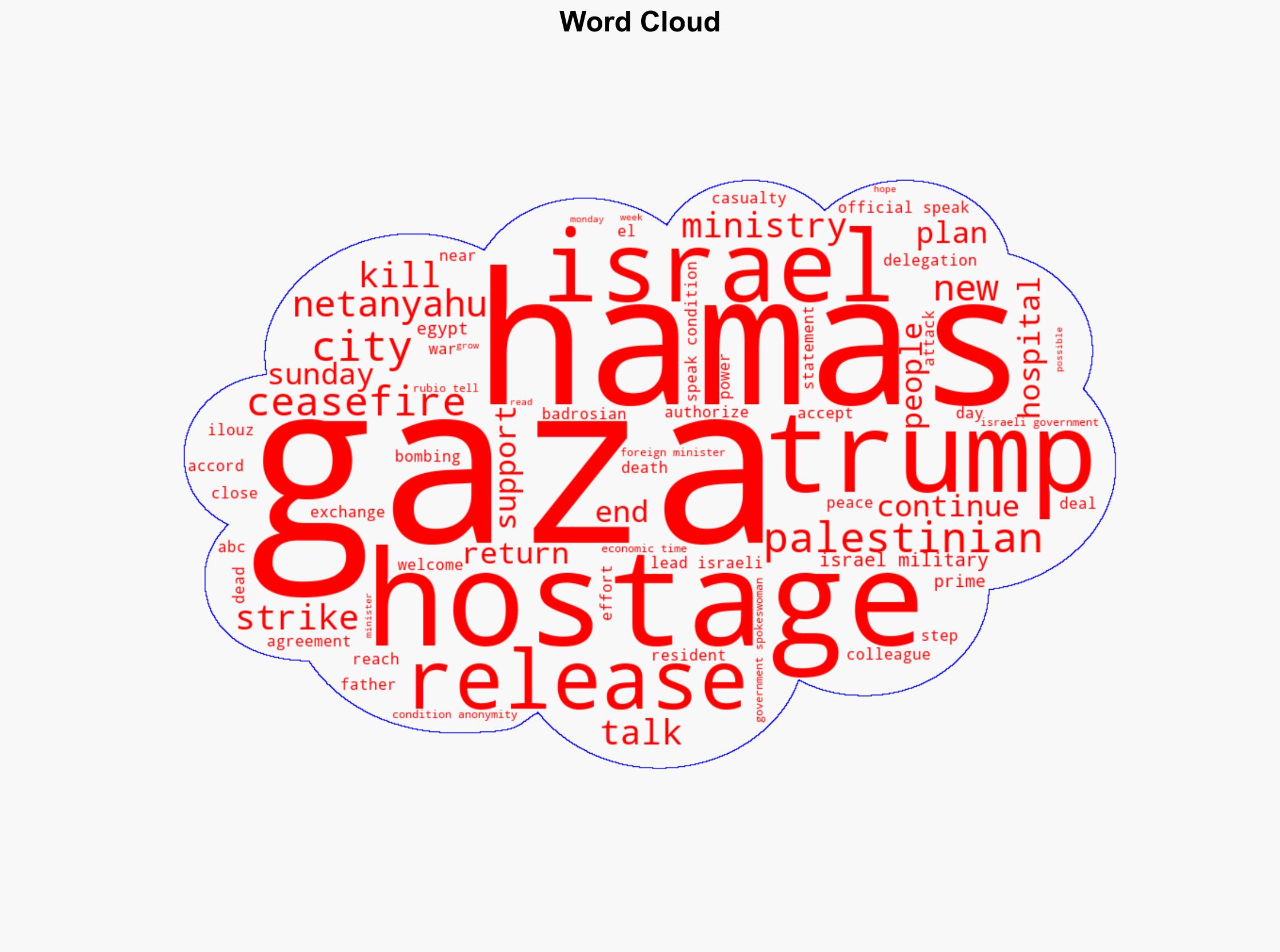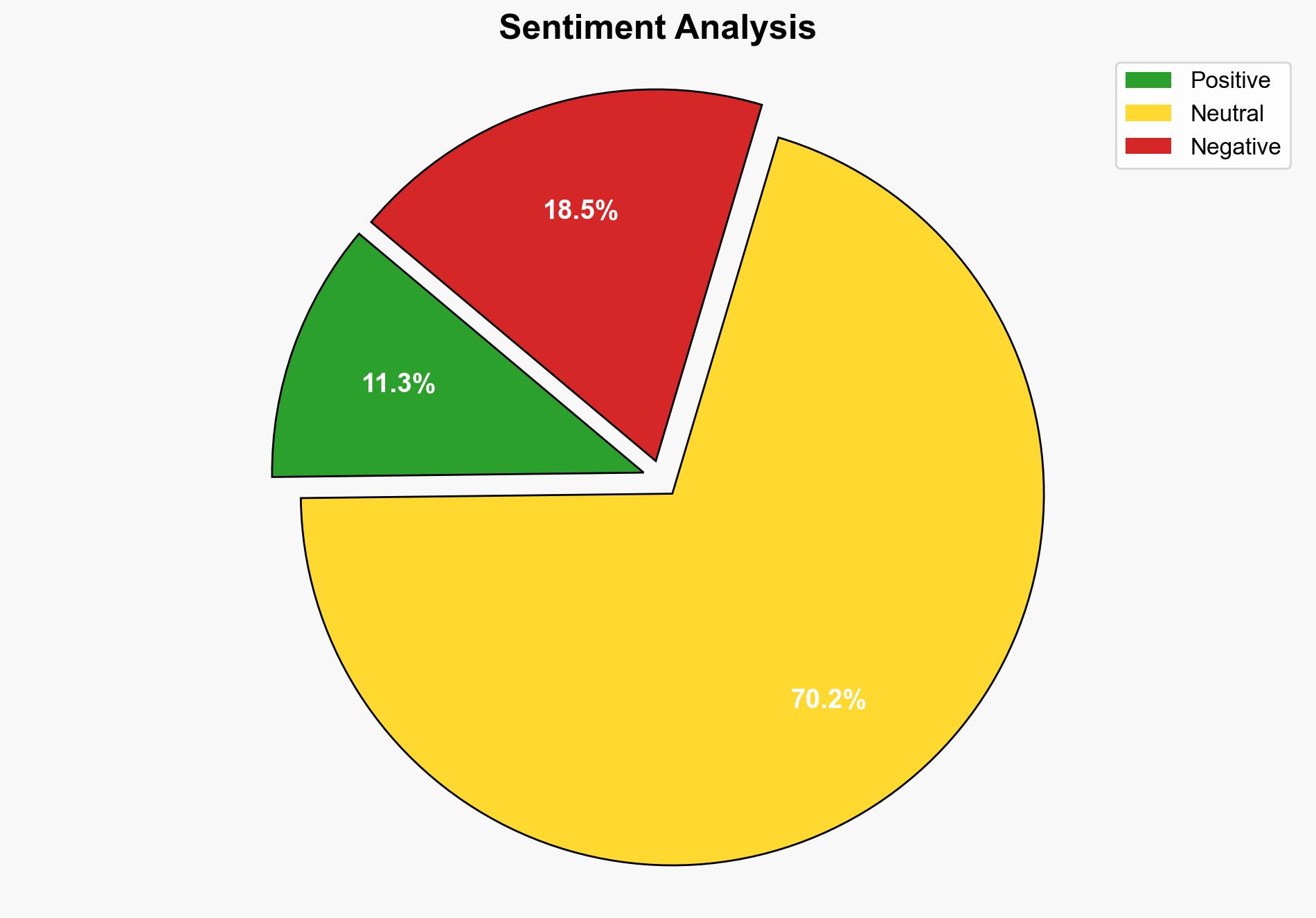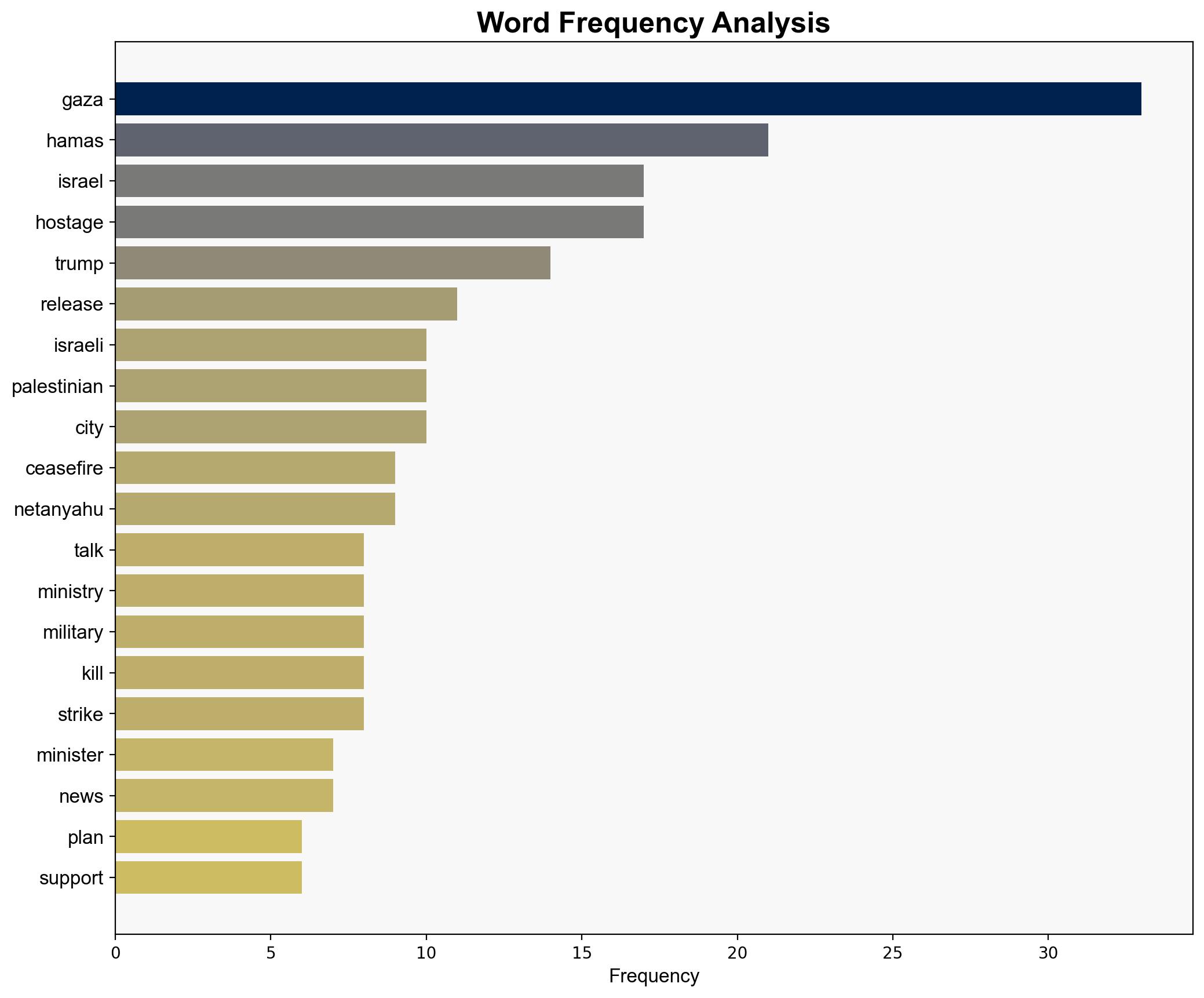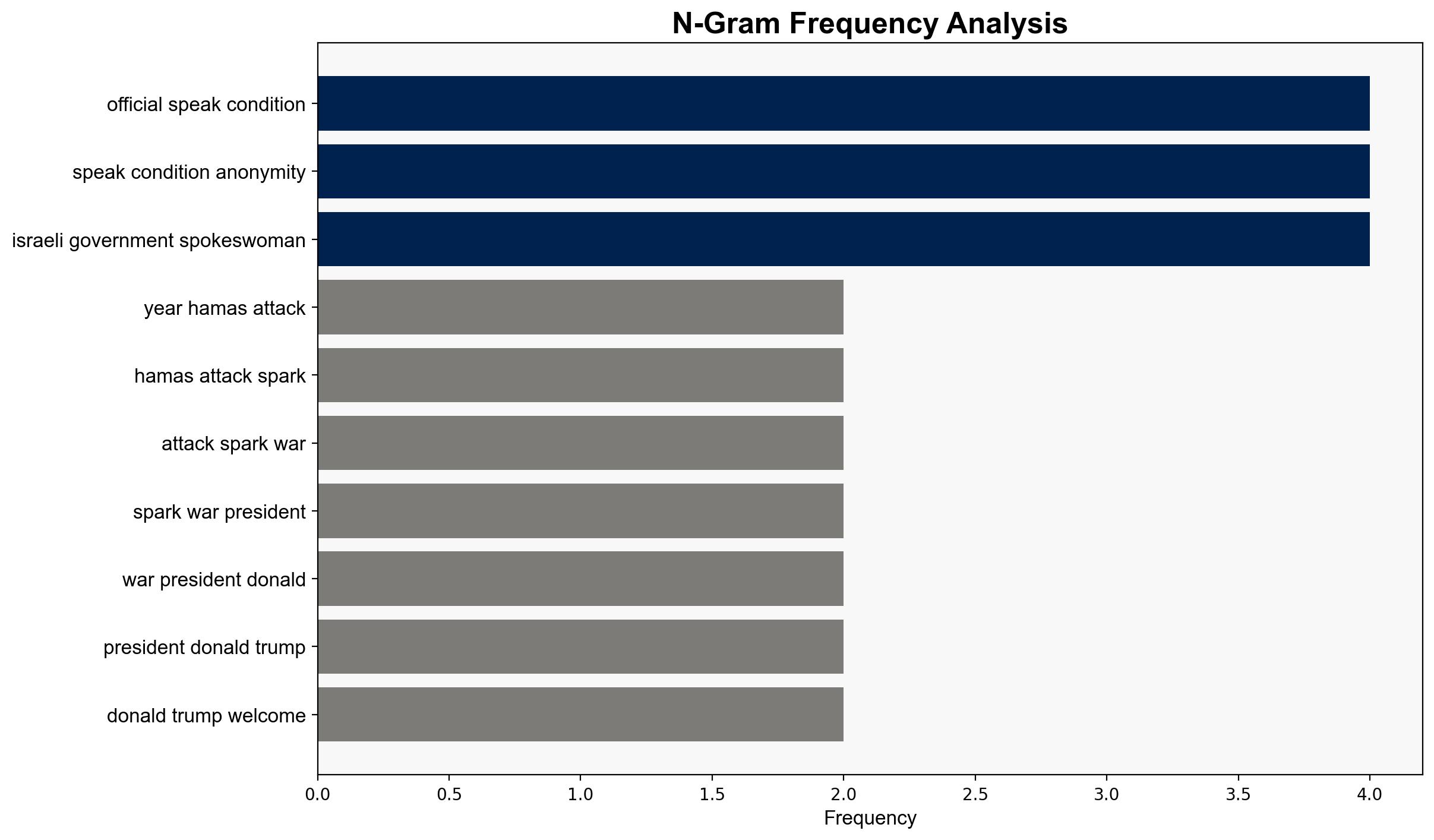Israel and Hamas prepare for negotiations in Egypt ahead of possible Gaza ceasefire – The Times of India
Published on: 2025-10-06
Intelligence Report: Israel and Hamas prepare for negotiations in Egypt ahead of possible Gaza ceasefire – The Times of India
1. BLUF (Bottom Line Up Front)
The most supported hypothesis is that the negotiations in Egypt will lead to a temporary ceasefire between Israel and Hamas, facilitated by international pressure and the involvement of key stakeholders like the United States. Confidence Level: Moderate. Recommended action includes diplomatic engagement to support the ceasefire and prepare for potential humanitarian aid requirements.
2. Competing Hypotheses
1. **Hypothesis A**: The negotiations will result in a temporary ceasefire, with both parties agreeing to exchange hostages and prisoners, influenced by international diplomatic pressure and the involvement of the U.S. administration.
2. **Hypothesis B**: The negotiations will fail to achieve a ceasefire, leading to continued hostilities due to deep-seated mistrust and unresolved core issues between Israel and Hamas.
Using ACH 2.0, Hypothesis A is better supported due to the presence of multiple indicators: active international involvement, statements from key figures like Donald Trump, and the structured negotiation process in Egypt. Hypothesis B lacks support as the current diplomatic momentum and international pressure are not conducive to a complete breakdown in talks.
3. Key Assumptions and Red Flags
– **Assumptions**: It is assumed that both parties are negotiating in good faith and that international actors have sufficient influence to broker a deal.
– **Red Flags**: The anonymity of sources and lack of direct statements from key negotiators could indicate potential misinformation or strategic deception. The historical volatility of the region suggests that any agreement may be fragile.
4. Implications and Strategic Risks
– **Implications**: A ceasefire could stabilize the region temporarily, allowing for humanitarian aid and rebuilding efforts. However, without addressing underlying issues, the risk of future conflict remains high.
– **Strategic Risks**: Failure to reach an agreement could lead to intensified conflict, increasing civilian casualties and regional instability. There is also a risk of international diplomatic fallout if negotiations are perceived as biased or ineffective.
5. Recommendations and Outlook
- Engage in diplomatic support for the ceasefire, leveraging international partnerships to ensure compliance and address humanitarian needs.
- Prepare contingency plans for humanitarian aid delivery in case of a ceasefire breakdown.
- Scenario Projections:
- **Best Case**: Successful ceasefire with a framework for long-term peace discussions.
- **Worst Case**: Breakdown in talks leading to escalated conflict and regional instability.
- **Most Likely**: Temporary ceasefire with ongoing negotiations and intermittent tensions.
6. Key Individuals and Entities
– Benjamin Netanyahu
– Donald Trump
– Ron Dermer
– Steve Witkoff
– Marco Rubio
– Gideon Sa’ar
7. Thematic Tags
national security threats, regional focus, diplomatic negotiations, conflict resolution




